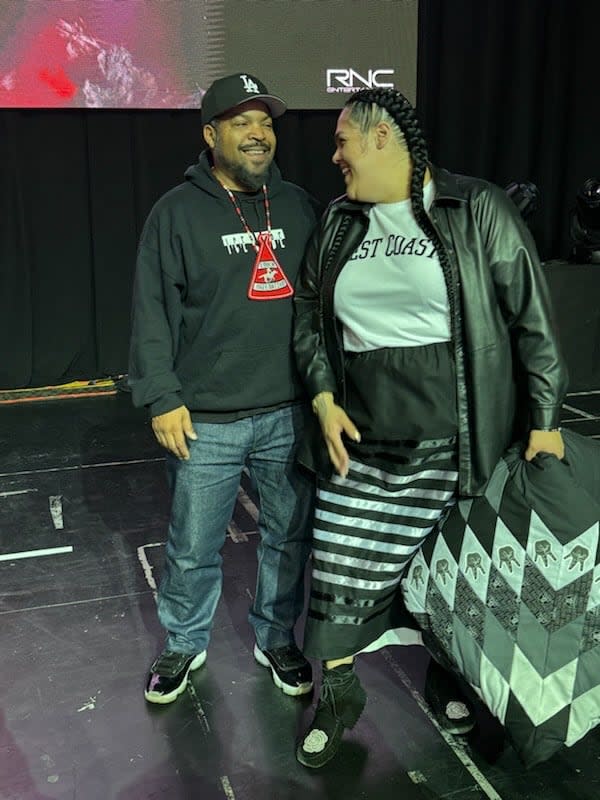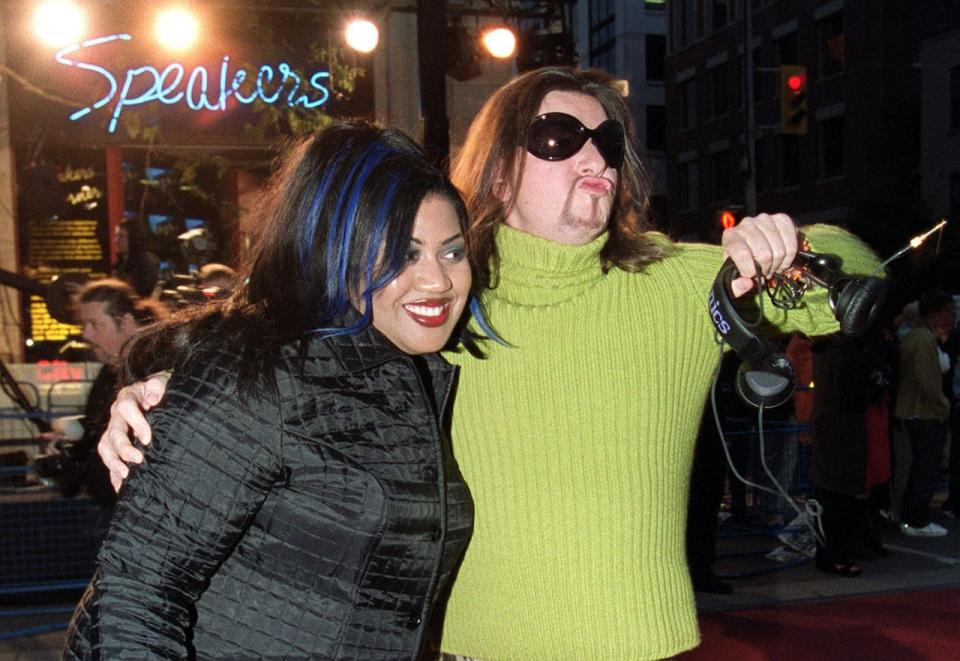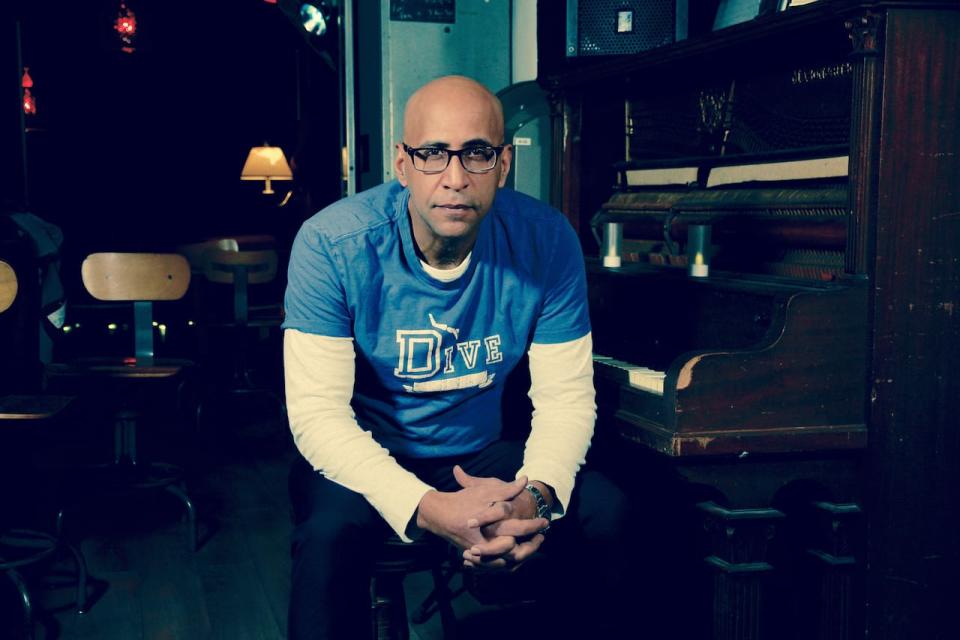You're (still) a superstar: Nostalgia tours drum up big feelings and big money
Nostalgia tours have come for millennials, and they're they're no longer confined to big cities.
Halifax star Sarah McLachlan is touring North America this month to celebrate the 30th anniversary of her classic album Fumbling Towards Ecstasy, while Belleville, Ont., rocker Avril Lavigne is in the midst of a "greatest hits" run celebrating her early 2000s material.
Concert listings can feel like déjà vu these days, as artists who hit their commercial peak decades ago head back out on the road. The nostalgia market pulls in big money, and brings up big feelings for fans and artists alike.
Dave Brooks, Billboard's senior director of live music and touring, says the market for nostalgia "is bigger now than it's ever been."
Brooks says the nostalgia market is now hitting millennials in their 30s and 40s, who might have more money to spend on concerts and are looking for experiences that take them back to their formative teen and early adult years.
But for places like Dawson Creek, B.C., with an entire population that's smaller than the capacity of a big-city arena, the nostalgia concert scene is a whole new experience.

Straight Up singer Paula Abdul announced an extensive Canadian tour this week, with support from fellow late-'80s pop stars Taylor Dayne and Tiffany, that excludes the usual stops in Vancouver, Toronto and Montreal in favour of much smaller markets like Dawson Creek, B.C., and Thunder Bay, Ont.
'A matter of getting the timing right'
"Nostalgia always has mass appeal, it's just a matter of getting the timing right. And it feels like we've been able to calculate this one out correctly," said Jim Cressman, president of Invictus Entertainment Group, the company that booked the tour.
"If you look back into the early '90s when grunge music exploded, the hair bands from the '80s like Motley Crue couldn't get arrested. They were back playing clubs, small events. And then everybody gets older, rediscovers the music from their youth, and Motley Crue's playing stadiums."
(Despite the popularity of grunge, members of Motley Crue did — literally — get arrested a number of times in the late 1990s.)
Cressman has become somewhat of a specialist in bringing nostalgia acts through Canada's smaller, untapped markets.
He recently booked rap legend Ice Cube on a similarly extensive tour, hitting small cities like Moose Jaw, Sask., and Oshawa, Ont., with many sold out shows along the way. In 2018, he brought legendary rocker John Mellencamp to such far-flung locales as Estevan, Sask.

Having grown up on a cattle ranch near Stettler, Alta., he says it was heartbreaking to miss out on big tours when he was younger. Now, he's using the country's "fairly unique" hockey rink infrastructure to set up shows in places that have never hosted big-name performers.
Cressman says one reason nostalgia acts can make these tours work financially, especially in a time when inflation has made touring more expensive than ever, is they know from experience how to put on a great show without overspending or production.
He says the name recognition and having an older, more financially secure fan base also allows them to charge more for tickets.
Reaching beyond original demographic
Billboard's Brooks says the massive success of the 2022 When We Were Young festival in Las Vegas, packed with emo and pop-punk bands like My Chemical Romance and Paramore, was a surprising indicator that fans were eager to shell out for their 2000s heartthrobs.
The same year, Canada's Alanis Morisette toured her wildly successful 1995 album Jagged Little Pill in its entirety, with support from iconic '90s rockers Garbage and Liz Phair.
LISTEN | What the rise of hip-hop nostalgia says about rap fandom:
Even bands like Creed and Limp Bizkit, that had commercial success in the late 90s and early 2000s but were critically maligned and ridiculed as their popularity waned, have returned to glowing praise and fanfare. Brooks says their recent success indicates that "people secretly really liked them before," even when "it wasn't cool to admit that you were a fan of the band."
And while streaming services like Spotify have hurt some artists' bottom lines, as physical album sales are still a fraction of what they once were, Brooks says streaming has also helped older acts reach fans beyond their original demographic in ways they couldn't before.
American stars from the '80s, '90s and 2000s, like boy band pioneers New Kids on the Block, rapper Snoop Dogg and Girls Just Want to Have Fun hitmaker Cyndi Lauper, are among those with Canadian stops lined up this year.
'I think it's needed right now'
Simone Denny, singer for late-'90s Toronto dance group Love Inc., says she loves reliving memories with fans when she sings hits like Broken Bones and You're A Superstar.
"We just went through a pandemic, you know. I think this has been really hard for most of us. And to go back and relive some of the good moments, and the good memories of when you were free and young and clubbing, or whatever the song meant to you at that time, I think it's needed right now," she said.

The COVID-19 pandemic brought nostalgia back in a big way in 2020. Psychologist Krystine Batcho told CBC at the time that loneliness and separation from others are documented triggers for nostalgia — and that social media platforms encouraged people to archive things from their past and share them, which helped people indulge in nostalgia in ways they couldn't have previously.
While tours were shelved during the pandemic, the industry reopened to huge pent-up demand.
Denny has been performing all over Canada and Europe, and will play Kamloops Pride this weekend and Toronto Pride at the end of the month.
She says fans approach her at every show with stories about how much the songs still mean to them more than two decades later. At a recent show in Belfast, she says a man told her he played You're A Superstar in the hospital room as his daughter was being born.
"It's heartwarming. It lets you know that everything you did was not in vain — the music, the touring, all of it," she said. "It's made its impact."
Nostalgia hits fans, artists, bookers in the feels
Winnipeg rockers The Watchmen, known for '90s hits like Stereo and Any Day Now, perform regularly across Canada despite not releasing an album since 2001, and have upcoming gigs this summer at the Calgary Stampede and opening for Neil Young in London, Ont.

Singer Daniel Greaves started playing in bars as a teenager, and now the fans he met decades ago have kids who they bring to Watchmen concerts. He said one married couple at a recent show informed him they had first met at a Watchmen show three decades earlier.
"I've had people come up to me in tears and it's unbelievable," Greaves said. "It means as much to me as it does to them."
Greaves said he's been humbled to find that people "still give a shit."
"Music is something that just brings people back to those good times, those bad times, those sad times," he said.
For Cressman, bringing older acts across Canada is always an emotional experience.
"It's that beautiful energetic exchange you bear witness to when you stand side stage and you see the artist reliving moments in their heyday — and then you look at the audience and you see everyone forgetting about whatever problems they have in their life three minutes at a time, while they indulge and enjoy their favourite song," he said.
"It might sound cheesy to you, but I get tears in my eyes every time I'm producing a show, standing side stage, looking at that audience getting a chance to connect with each other … and relive whatever moment that song might represent to them and their individual and specific life."


